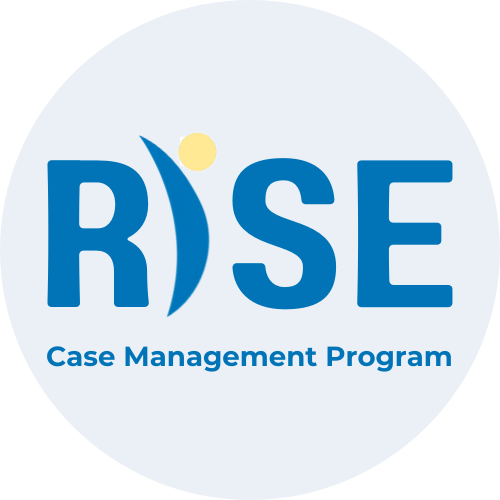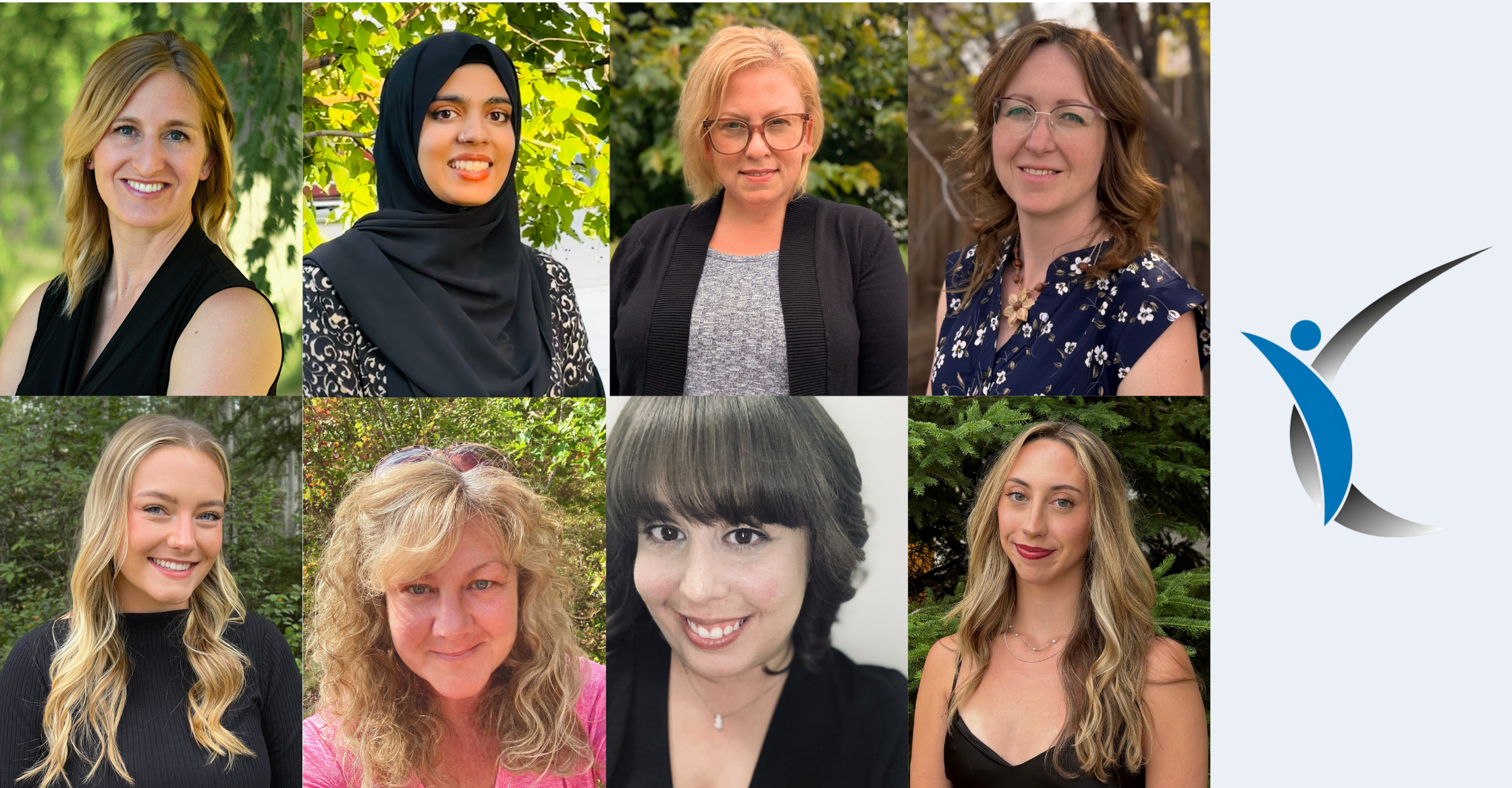A Year of Innovation in Disability Case Management: Insights from Founder, Tracy Oman
What is Integrated VRS, and what are your favourite aspects of the business?
“Integrated is an end-to-end vocational rehab and disability management company. So, we offer services from assessments through to case management, as well as return-to-work and job search services. I would say that my favourite aspect of the business is truly seeing individuals regaining confidence in their abilities and eventually that successful step back into the workplace.”
What was the inspiration behind starting IVRS?
“The name of the business, Integrated, is actually the passion behind it. That's what I felt was missing in a lot of the service areas that I had previously worked in - A full, integrated, wrap-around approach where we are really looking at all the necessary services that a person might need when they're off work.
From a client’s perspective, we want it to feel like a seamless approach. We want it to feel like we are looking at the whole person. So, being able to offer an integrated service for the client, and for them to feel that, is part of why we created the company.”
Have you always been in the vocational rehab and disability management space, or did you come from a different background?
“I actually originally trained as a physical therapist and worked as a clinician for many, many years. Then I had my own injury that took me out of my workplace, and I had a very difficult time going back into the physical aspect of physical therapy. I was able to work part-time comfortably, but I really needed to ask myself: what else can I do?
So, I started to explore my own transferable skills (long before I knew what a Transferable Skills Analysis was), and I looked at where I could utilize my knowledge and experience as a clinician. That led me to talk with a colleague of mine, many years ago, who was a vocational rehab professional, and she introduced me to the career path of vocational rehab and disability management.”
What do you love about vocational rehab, disability management, and return-to-work services?
“I think the part that I love the most is that human touch. One of the things that I'm very passionate about is meeting people where they're at. Having gone through the experience myself of being off work related to an injury - I felt isolated. I felt alone. I felt unheard. I didn't always feel that I was valued in what I was able to offer.
So, that's truly what I love about what we do at Integrated, is that we do see the client as that whole person. My favourite part is meeting people where they're at and starting to unpack that experience. Nobody wants to be off work. Nobody wants to have this upset in their life -it dismantles all of our structure as we know it. It alters our routine and changes everything about what we do.
I enjoy being able to meet someone at that point in time in their life, and be a very important part of the journey of recovery - taking them right from the onset of it back into the workplace. The biggest thing for me is when I hear from clients; months have passed, sometimes years have passed, and they reach out to me. Those are the most rewarding times in my career where I can see a client come full circle and remember that all of those hard conversations and difficult steps that we had to take with them are what led to that positive outcome for them.”
Could you tell us a little more about the name Integrated, where it came from, and how it ties into the business?
“Integrated really is our approach - that's the best way to put it! We want to make sure that our services are end-to-end, where everything is weaving together. Our logo was designed to show this weaving together, too. We had a number of heads at the table when we started drawing the logo, and we wanted it to look as though someone was feeling connected and being integrated into our service delivery. In a nutshell, it’s making people feel like we're hearing, seeing, and valuing what they bring to the table and being able to offer those integrated services to help them achieve their goals.“
How has the company evolved since you launched it a year ago?
“That's a great question. When I first made the decision to step away and start my own company, I didn't realize the potential growth that the company would experience in our first year. To be honest, it’s been our great networks and partnerships that have realized our first year.
As far as what we've evolved into, we've started small like every other company, and we've just evolved the services that we offer. Our services and processes have become more refined, and our service offerings have started to address more of our clients’ needs. I would say the other way we’ve grown is by adapting to the needs of the industry, acknowledging that mental health continues to be on the rise as far as people leaving the workforce. We’ve been focusing on how we can identify the needs of those particular clients and how we can support them in their recovery.”
Have you been working on creating any programs or services to meet this new demand in the market?
“Yes, my passion piece is our new program called RISE, which was born out of a desire to help people struggling with their mental health. For the clients that I've had the privilege to serve in the past, I would say a majority of them describe a sense of isolation. They are in a silo, they feel alone.
Not only just within their normal support network, but within their medical support network. We wanted to design a program that allows that person to become part of a broader support network. We've utilized the collaborative care model in a measurement-based system to develop a program called RISE (Resilience, Integrated Support and Education).
So really, we’re trying to address all the needs that the client might have by building not only a medical support team, but a broader care team. The collaborative model puts the client in the centre, while everyone else supports this individual. A part of this is also helping to teach the individual what the collaborative model is and what they should expect, while also showing them how to utilize the system throughout their recovery.
The other factor I touched on was that isolation piece. So, alongside our RISE Case Management Program, we also have a complementary RISE Education Program, which has been specifically designed to help individuals become empowered on their mental health journey. We acknowledge that mental health is on a continuum, and there are times when we're in a good space and there are times when we're not in a good space - so we try to teach them how to identify early what those triggers are and explore how they can gain control of their mental health journey as they venture back to work.
RISE is our pet project. I would say, as an entire team, we've been “all hands on deck”. It started from the simple desire to be able to help people who were feeling isolated. We've recently launched the RISE Program and have already seen remarkable progress in our clients.”
How does Integrated Vocational Rehab Solutions' approach to vocational rehabilitation differ from others in the industry? What makes you stand out from the crowd?
“Well, I can say (with thanks) that I am where I am today because of my mentors before me. All of my learning has been on-the-job and, as I shared earlier in the interview, I am where I am in my career because of all the wonderful people who have helped me to get here.
I think what sets us apart is our team. Our team is a wonderful, very collaborative team - we are really focused on serving our clients, and every member of our team is invested in that. It's a we approach, not an I approach. So, I would say that's probably what sets us apart the most from other vocational rehab companies is the team that backs our name.”
What are your goals and priorities for the second year of the company?
“That's a great question! We had the opportunity to come together as a leadership team recently to have some strategy planning meetings and review where to go from here. It was a very humbling experience to see how much we've grown within our first year and to be realistic about what we could achieve and how we can help the industry.
Our goal for this upcoming year is to refine those services that we currently have and to continue building ongoing relationships with our current partners. We also want to look at what the industry needs and how we can innovate to meet that need.
One of the biggest industry gaps that continues to arise is partnerships among small-to-medium-sized employers. We want to be able to offer them the services that larger companies typically have in-house by offering that seamless, integrated approach. We want to help them with clients who are off work, and by offering early interventions to keep people at work.
To recap, I would say we are certainly looking at refining and continuing to build with what we already have, with the goal and intention of exploring the market as to where we could help within that small to medium-sized employer group from a disability management perspective.”
Are there any final thoughts or messages that you'd like to share as we celebrate our one-year anniversary?
“Reaching our one-year milestone is truly a moment of gratitude and reflection. I am incredibly grateful for the IVRS team, and I'm so proud of what we have collectively built. Our great team is certainly the reason that we have achieved the growth that we have. So, a huge thank you to the Integrated team!
We are wonderful together, and again, it's about what we can achieve to help support our clients versus an I approach.
So again, thank you and kudos to everyone on the Integrated team for all their hard work this year.”




